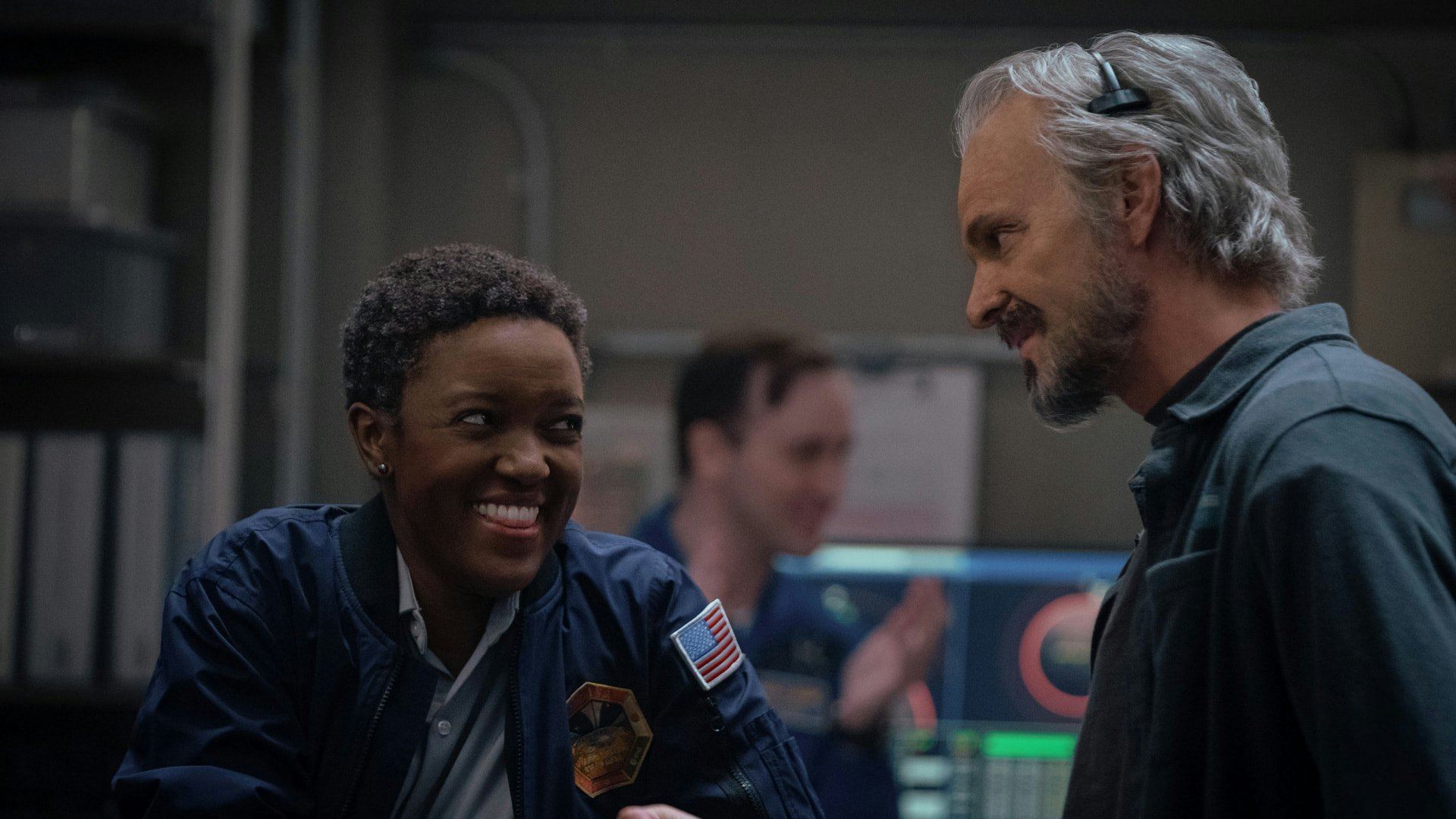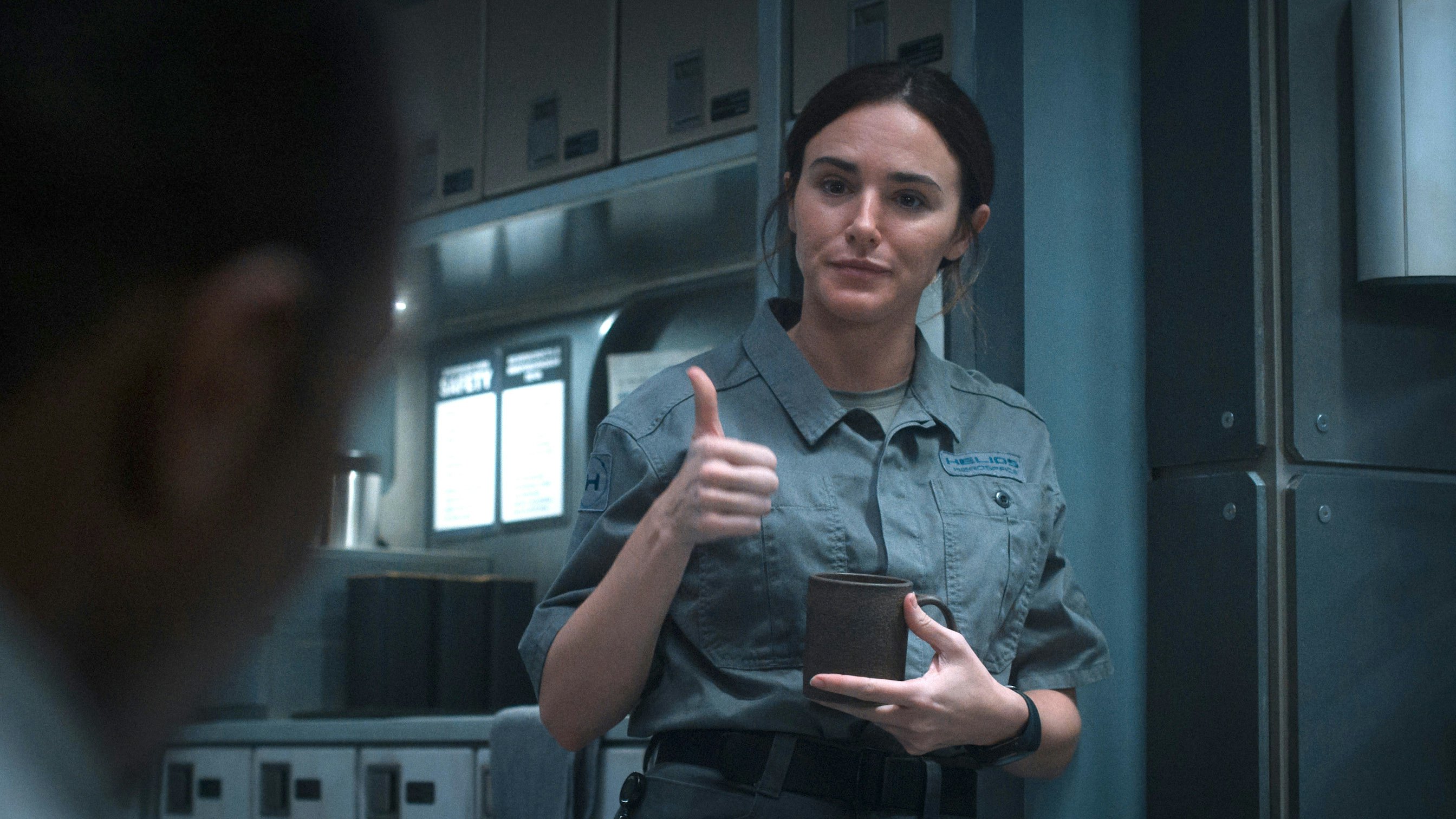
Some sci-fi tropes can extend to real life. If everyone who goes into space is an astronaut, then we view them all as heroes, or at least as people with really cool jobs. But as space travel changes, not every single person in space will be an astronaut; eventually, someone will have to clean the space toilets. And when that day comes, we’ll need to talk about labor in space.
In the second episode of For All Mankind Season 4, a painfully brilliant twist brings that future-tense conversation to the forefront. Here’s how “Have a Nice Sol” foreshadows real issues humanity could face in space. Spoilers ahead.

In “Have a Nice Sol,” Season 4 newcomer Miles Dale (Toby Kebbell) begins his work as a Helios employee at the Happy Valley Base on Mars. We quickly see that life for the maintenance folks is nothing like the perks enjoyed by the upper-echelon astronauts. In a brutal sequence, we see a typical day for Miles side-by-side with Danielle’s experience as Happy Valley’s new NASA commander. Dani is getting nice coffee, good food, and having a pleasant, almost Star Trek-ish experience in space. Miles, meanwhile, is slogging through endless menial labor, and he can’t even send a message to his family back on Earth.
Could this happen in real life? This form of science fiction is more urgent than you might think. According to Erika Nesvold, astrophysicist and author of Off-Earth: Ethical Questions and Quandaries for Living in Outer Space, pushing concerns about ethical labor practices in space to the back of our minds is dangerous. In an interview with Wired earlier this year, Nesvold said she started “reaching out to experts in the social sciences,” after being concerned Silicon Valley employers trying to tackle space weren’t concerned about workers’ rights. “They were just dismissive,” she said, and adopted a “we’ll worry about that later” policy.
In the same Wired interview, Nesvold outlines a future space-labor concern from her book, which predicts the most recent For All Mankind episode.
“How do we protect the rights of people who go to space as workers? I talked to someone in the book who works at the International Labor Rights Forum, and she pointed out that there’s a clear parallel with a problem she dealt with regarding fishermen in Thailand. The workers would be taken out to sea. Their passports would be taken away. They could be out there for years; there were lots of abuses that weren’t being monitored. She could foresee the same thing happening if you’re going off to work in space on a rocket you don’t control.”

In For All Mankind’s latest episode, this is more or less what happens. The workers at Happy Valley are treated as second-class citizens, a development foreshadowed in the new season’s first episode, “Glasnost.” That saw the loss of courageous Cosmonaut Grigory “Kuz” Kuznetsov (Lev Gorn), who’s mourned by Ed Baldwin (Joel Kinnaman) and other base personnel in “Have a Nice Sol.” But as Helios worker Sam Massey (Tyner Rushing) points out, fellow worker Tom Parker (Mac Brandt) also perished with Kuz while attempting a salvage operation, but no one is wearing his initials on their uniforms in memoriam.
This episode highlights one of the strengths of For All Mankind’s writing, because it makes us uncomfortable about our heroes. We’re used to thinking about Ed and Danielle (Krys Marshall) as the good guys, but here Dani comes across as oblivious, while Ed is downright hostile to Miles’ complaints, echoing a take-what-you-can-get dismissal prevalent in so much of corporate America. It’s chilling and hard to watch, because we’re used to rooting for Ed even when he’s being a jerk.
Because For All Mankind is a fundamentally optimistic series, some of the woes of the Helios workers are addressed in this episode. Dani pushes Ed and the corporate bigwigs to repair a shoddy communication satellite, which restores bandwidth for those in the lower parts of the base. This raises morale a bit, we get to see Dani as the equitable, heroic astronaut we’ve admired since Season 1, and we see Miles smiling as he gets video messages from his family for the first time in months.
But this storyline isn’t over. The Helios workers are still being exploited, and in the closed system of this new Mars economy, it’s only a matter of time until there’s a bigger labor backlash. Science fiction often likes to present a future in which going to space erases our socioeconomic problems, but as For All Mankind’s creator, Ron Moore, pointed out, “We still take a lot of our baggage out into space.” Hopefully policymakers take notice of For All Mankind’s cautionary aspects, and prevent a humanitarian crisis in our future before it happens.







